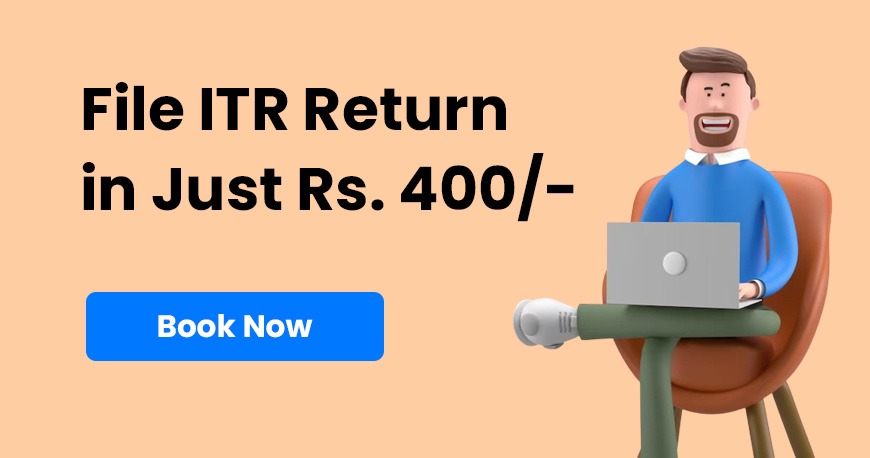New IMPS Rule: Send Up to Rs 5 Lakh with Mobile Number and Bank Name – No Need for Beneficiary, Account, or IFSC
You can now send money using just the recipient's mobile number and bank account name, according to NPCI. How does it work?
New IMPS Rule: Send Up to Rs 5 Lakh with Mobile Number and Bank Name – No Need for Beneficiary, Account, or IFSC
Very soon, you will be able to send up to Rs 5 lakh between bank accounts without adding a beneficiary. The National Payments Corporation of India (NPCI) has made bank transfers simpler and more accurate through the Immediate Payment Service (IMPS).
You can now send money using just the recipient's mobile number and bank account name, according to NPCI. How does it work? And what if you have two accounts with the same bank? Below we have explained in detail to make you understand this new & easier IMPS process.
Understanding How IMPS Works for Bank Transfers
IMPS offers two types of payments: Person-to-account payment and Person-to-person payment.
1. Person-to-account payment: To transfer money, you need the recipient's bank account number, bank name, and IFSC code.
2. Person-to-person payment: This method requires a mobile number and a unique mobile money identifier (MMID) to identify the recipient when sending money between bank accounts. MMID is a seven-digit number provided by banks for mobile banking. Each mobile banking account has its own MMID.
For person-to-person payments using IMPS, both the sender and receiver must have MMIDs. Additionally, you need to know the receiver's MMID to complete the transaction.
It's worth noting that this person-to-person payment method is less popular because it requires knowledge of the recipient's MMID. While banks have a standard system for MMIDs, many customers are unaware of their MMIDs. As a result, most people prefer person-to-account payments over person-to-person payments.
The Easier IMPS: What NPCI Suggests?
The National Payments Corporation of India (NPCI) has introduced a simpler way to use IMPS for transactions through channels like Mobile Banking and Internet Banking.
Now, you can make transactions by just entering the recipient's mobile number and their bank's name. This improved payment process will also verify the recipient's name in real-time.
This upgraded IMPS is a more straightforward method for person-to-person payments using mobile numbers and MMIDs. Instead of using the unique MMID, the sender will select the recipient's mobile number and their bank from a list of available banks when sending money.
Simplified IMPS Transfer Limits: How Much You Can Transfer Through New IMPS
The new simplified IMPS allows you to transfer up to Rs 5 lakh without adding a beneficiary. NPCI indicates that this streamlined process can be used for both retail and corporate purposes, especially for bulk transactions. However, the specific upper limit may vary between banks based on their policies.
As per the sources: Most banks offer two payment options within their apps or net banking:
1. Quick Pay: This is for manually entering beneficiary details and amounts for small, ad-hoc payments. There's a cap on the limit for this option.
2. Transfer to the Beneficiary: This option allows customers to make high-value payments to pre-verified beneficiaries. Beneficiary name validation is implemented for both quick pay and beneficiary addition to confirm the recipient's name before completing the transaction.
When Can You Use It?
Banks are gradually introducing this new feature. Some banks, like Federal Bank, are nearing implementation as beneficiary banks. However, it may take a bit more time for remitters to make these changes.
IMPS Real-Time Beneficiary Validation: How Does It Work?
Currently, there is no real-time way to verify if the recipient details match the intended sender before sending money. However, the new simplified IMPS introduces real-time beneficiary name validation. This means that before authorizing a transaction, you can check and confirm the beneficiary's name. This additional safety feature is especially crucial in the simplified flow, where the mobile number is the primary identifier. A small mistake in entering the mobile number can lead to funds going to the wrong person.
What Happens if Two Accounts Are Linked to One Mobile Number?
In the new simplified IMPS, where the mobile number is the primary identifier, what happens when two bank accounts are linked to the same mobile number? The beneficiary bank designates one account as the primary one for receiving funds. Additionally, banks offer accountholders the option to select the primary or default account to receive money. Beneficiaries can also change their primary account to another one if needed, giving them more control over their funds.
How Does Simplified IMPS Benefit Customers?
The new simplified IMPS simplifies the payment process by using just the mobile number and bank name, making it more user-friendly compared to other payment methods that require more complex information like account numbers, IFSC codes, or MMIDs. Similar to UPI, this simplified IMPS allows users to make payments using mobile numbers, but it works for all bank accounts, not just UPI users. The maximum person-to-person fund transfer limit is set at Rs 1 lakh under UPI, while with IMPS simplified flow, users can make mobile number-based payments up to Rs 5 lakh. This approach enhances user convenience, reduces the chances of errors and fraud, and adds an extra layer of security by requiring beneficiary verification before authorizing a payment. It also streamlines cross-border inward remittances that use the IMPS rails for domestic instant settlement.
In summary, the new simplified IMPS allows:
1. Payments using a mobile number and selecting the beneficiary's bank name, eliminating the need for an account number or IFSC.
2. Real-time beneficiary validation to reduce the risk of incorrect or erroneous transfers.
3. Transfers of up to Rs 5 lakh without adding the beneficiary.
Also Read: Comprehensive Guide of Section 194N of The Income Tax Act of 1961
FILING YOUR INCOME TAX RETURN F.Y 2022-23 (A.Y. 2023-2024) WITH MYITRONLINE
Income tax filing deadline is right around the corner. If you haven’t filed yet, do it now for FREE on Myitronline! Avoid last minute rush and file your tax return today on MYITRONLINE in Just 5 mins.(www.myitronline.com)
If you are looking for eCA assistance to file your income tax return/ GST, you can opt for MYITRONLINE eCA assisted plan starting
Upload Salary Individual Form-16
If you have any questions with filing your tax return, please reply to this mail. info@myitronline.com OR call 9971055886.
Note-All the aforementioned information in the article is taken from authentic resources and has been published after moderation. Any change in the information other than fact must be believed as a human error. For queries mail us at marketing@myitronline.com
Krishna Gopal Varshney
An editor at MyitronlinenewsKrishna Gopal Varshney, Founder & CEO of Myitronline Global Services Private Limited at Delhi. A dedicated and tireless Expert Service Provider for the clients seeking tax filing assistance and all other essential requirements associated with Business/Professional establishment. Connect to us and let us give the Best Support to make you a Success. Visit our website for latest Business News and IT Updates.









